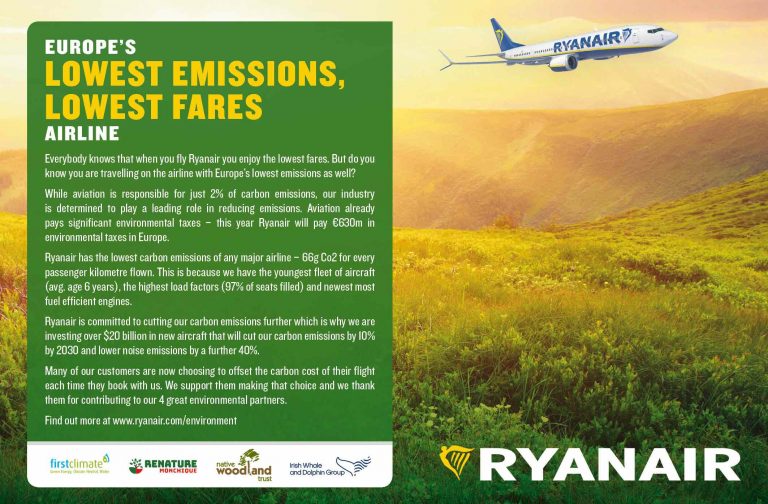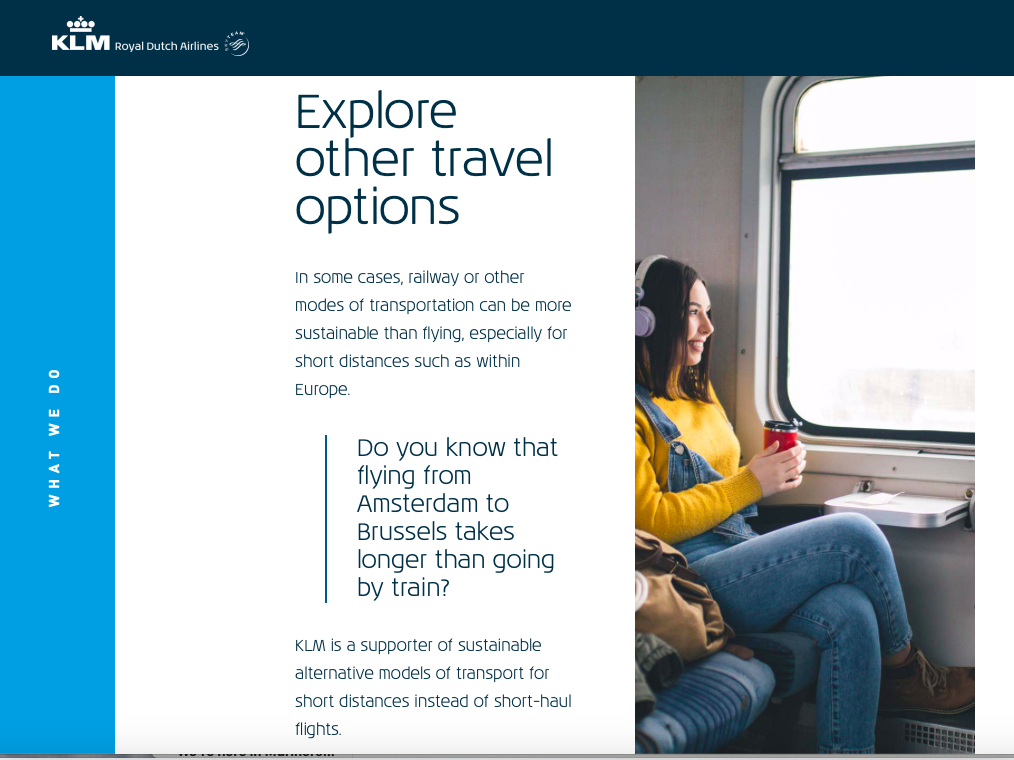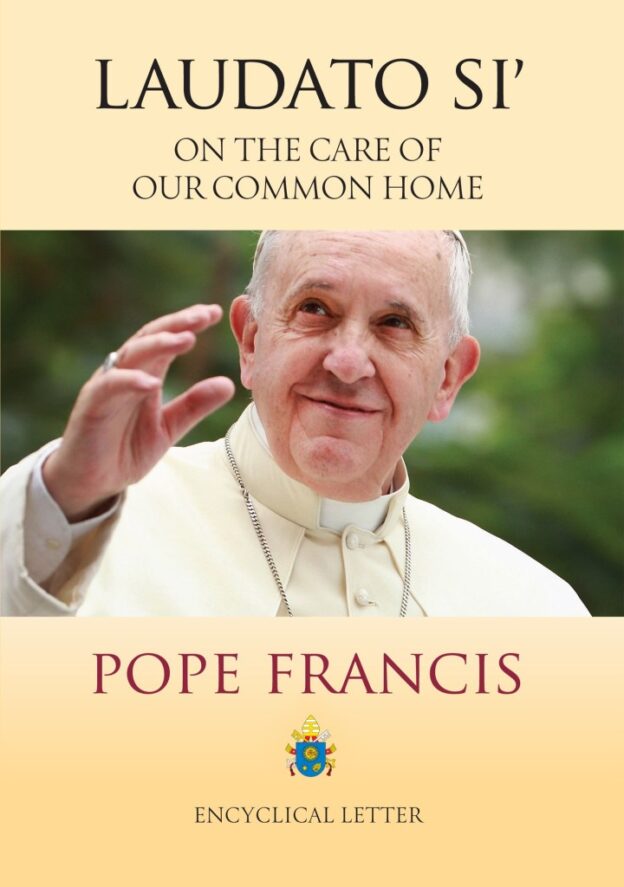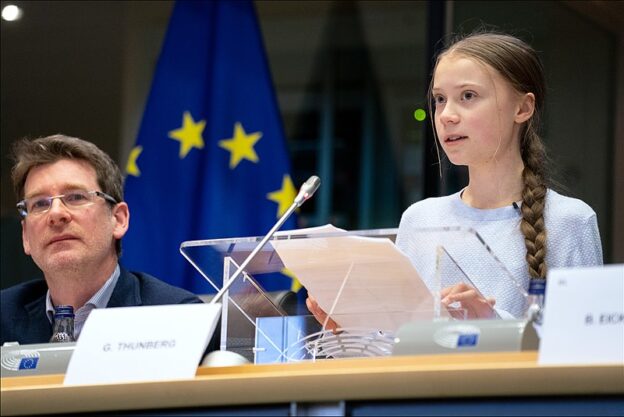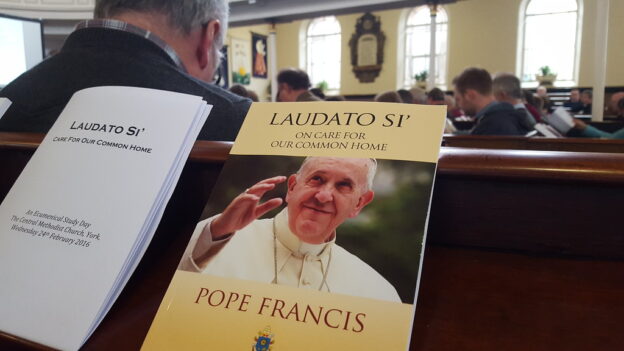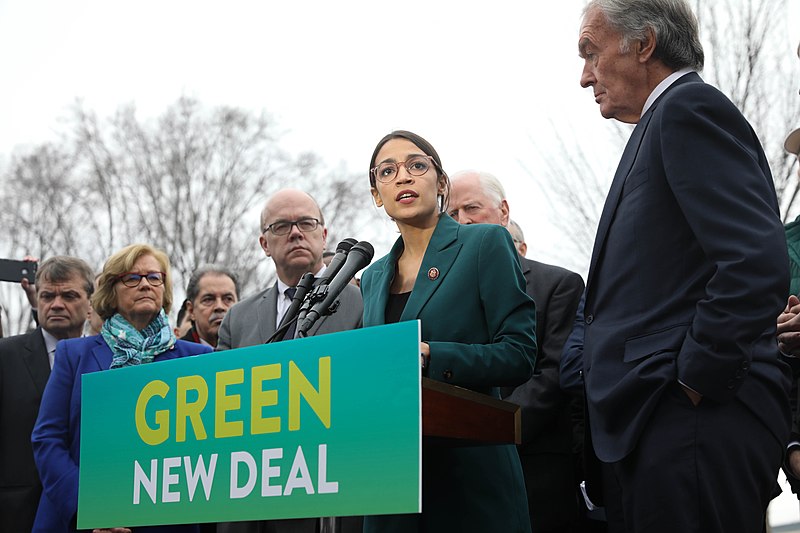With a rising global middle class and decline in inflation-adjusted airfares, the number of air passengers is forecasted to double in the next 20 years, which also means an increase in greenhouse gases emitted by airplanes — taking up as much as 27 percent of our carbon budget.
Flying also has a significant impact on one’s individual carbon footprint compared to other measure individuals can take, such as carpooling or giving up meat. Flight Free USA offers a calculator, where one can enter a flight route and see the climate impacts of flying — or avoiding — that flight.
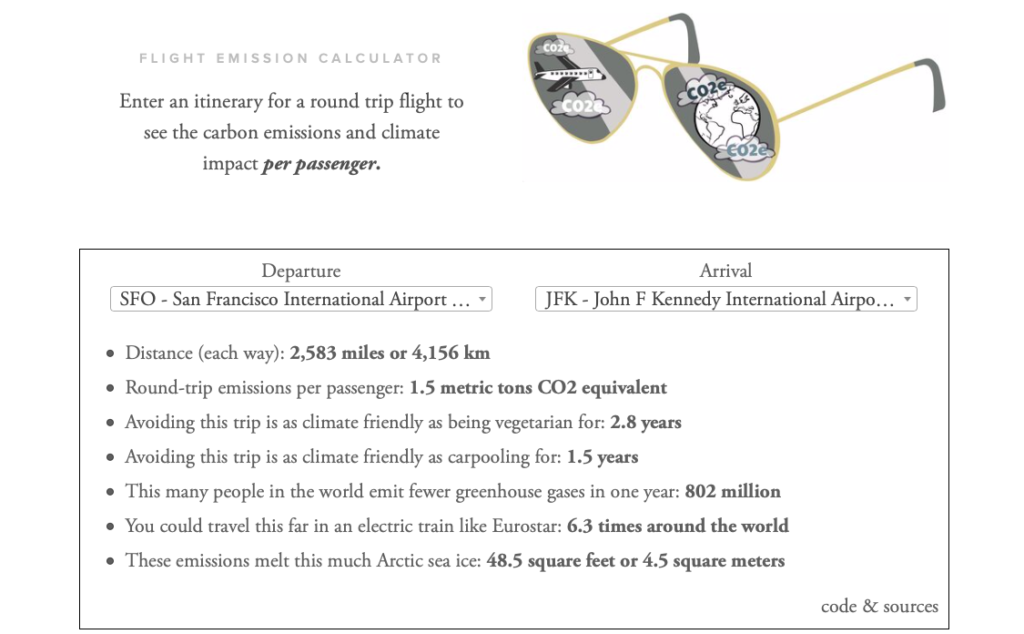
Awareness of the impact of these emissions has given birth to “flight shaming” – or “flygskam” in Sweden, where it originated – a movement that seeks to discourage flying for environmental reasons. Climate activist Greta Thunberg gave the movement a significant boost in 2019 when she made a high-profile crossing of the Atlantic on a carbon-neutral boat, consistent with her own pledge to avoid air travel.
While dozens of media stories have reported on flight shaming, it is not (yet) a mainstream movement. Even committed environmentalists continue to fly, and many individuals have offered their own “green” responses to the movement, which include:
- Continue to fly because of the many benefits of travel, including building global empathy, supporting local economies and keeping poachers at bay.
- Cut down on flying without totally eliminating it. The problem may lie less with those who fly once or twice a year and more with the 12% of Americans who fly six or more times per year who are responsible for about two-thirds of all flights. For those who do fly, the following practices are recommended:
- travel with less baggage (lighter planes require less fuel)
- avoid business class (larger seats make this option two to four times as carbon intensive as economy class)
- choose nonstop flights (takeoff is the most carbon-intensive portion of the flight, making one flight significantly more efficient than two)
- Purchase carbon offsets when you fly. This involves investing a small amount of money into a project that is said to remove carbon dioxide from the atmosphere to make up for a traveler’s share of carbon emitted from a flight — including planting trees, maintaining forests, building a wind farm. Many environmentalists criticize this practice, saying there is no scientific basis that these projects actually counter the carbon emissions of flying and that the purchase of carbon offsets perpetuates the myth that it is possible to fly without increasing greenhouse gases in the atmosphere.
- Fight for systemic change in the form of a carbon tax that will discourage air travel on a large scale.
Recent air travel numbers show the movement may be having an effect in Sweden and Germany, where pre-pandemic domestic air travel showed slight declines from previous years, while more-sustainable rail travel posted record numbers.
While the skipped-trips of flight-shamers themselves may not have a significant impact on greenhouse gases, the voices of the movement are being heard and influencing policy proposals:
- Germany has increased taxes on domestic flights and cut taxes on trains.
- A proposal in the United Kingdom, called A Free Ride, would add a gradually increasing tax on each individual’s annual flights.
- The Green New Deal resolution in the U.S. Congress calls for the development of high-speed rail in the United States.
Airlines, too, are taking note, with many promoting their own sustainability credentials. Below are two examples. The first, from Ryanair, has been heavily criticized as “greenwashing.” The carrier advertises itself as Europe’s lowest emissions airline, based on carbon emissions per seat-kilometer flown, because it has a younger, more fuel-efficient fleet and fills 96 percent of its seats. The ads do not mention that Ryanair is the tenth-largest carbon emitter in Europe (the first nine are coal-fired power plants). KLM, on the other hand, recommends exploring other travel options besides flying.
Unfortunately, Americans have few green options for inter-city travel. Rail is by far more sustainable than air or car travel. And while extensive high-speed rail networks link hundreds of cities across Europe and Asia, the United States’ only “high-speed” rail corridor, connecting Boston and Washington, D.C., moves at an average of 66 mph. Rail travel in the rest of the country is worse: A train trip from New York City to Chicago takes 19 hours (for comparison, Beijing and Shanghai, an equivalent distance, can be covered in 4 hours and 20 minutes by train).
If implemented, the Green New Deal could make massive investments in our rail network, though the infrastructure would likely take years to build, years we do not have to wait if we are going to limit warming of the planet.
While flight shaming remains a radical notion in the United States, environmentalists are clear that radical change is needed to avoid a climate catastrophe. Is flight shaming is the radicalism we need?
Resources/further reading:
- Anderson, Kevin. “The inconvenient truth of carbon offsets.” Nature 484.7392 (2012): 7.
- Flight Free USA
- KLM: Fly Responsibly
- Reynolds, Matt. “Sorry Ryanair, there’s no such thing as a green airline.” 12 October 2019. Wired.
- Rosen, Eric. “As Billions More Fly, Here’s How Aviation Could Evolve.” 20 June 2017. National Geographic.
- Rutherford, Dan. “Should you be ashamed of flying? Probably not*.” 23 September 2019. International Council on Clean Transportation.
- Selibas, Dimitri. “We’re Flying Less. And Wild Places that Count on Tourism Dollars Are Starting to Take Notice.” Ensia.
- Söderberg, Maria Wolrath and Nina Wormbs. “Grounded: Beyond Flygskam.” 2019. European Liberal Forum.
- We Stay on the Ground


